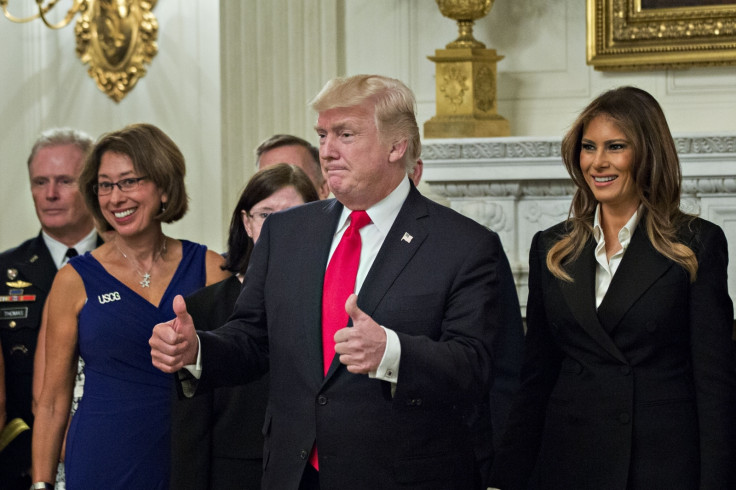'Calm before the storm': Trump faces second nuclear weapons stand-off by abandoning Iran deal
KEY POINTS
- US president plans to back out of landmark 2015 Iran nuclear deal.
- Trump referred to deal as "worst ever negotiated".
- Tensions already exist between US and North Korea's nuclear missile programme.
Donald Trump is expected to decertify the international Iran nuclear deal on the basis it does not serve US security interests. The landmark 2015 agreement, which Trump has previously described as the "worst deal ever negotiated", meant Iran must impose strict curbs on its nuclear programme in exchange for sanctions relief.
The US president has until 15 October to decide whether he will back the deal and agree that Iran is complying on their side. If he fails to do so, US Congress will have 60 days to decide whether to reimpose sanctions on Tehran suspended under the agreement.
At a meeting with military leaders, Trump was heard saying reporters present were witnessing "the calm before the storm". When pressed to clarify, Trump added: "you'll find out".
During the meeting at the White House, the president said: "We must not allow Iran ... to obtain nuclear weapons.
"The Iranian regime supports terrorism and exports violence, bloodshed and chaos across the Middle East. That is why we must put an end to Iran's continued aggression and nuclear ambitions. They have not lived up to the spirit of their agreement."
When asked about the decision on whether to certify the nuclear deal, Trump said: "You'll be hearing about Iran very shortly."
Iran agreed to curb its nuclear activity so sanctions in the country which have crippled their economy could be lifted.
There are fears its collapse could result in a nuclear arms race in the Middle-East at a time when there are already tensions between the US and North Korea over Pyongyang's nuclear missile programme and threat of war.
The 2015 Iran deal has also been criticised by some who felt sanctions should only have been lifted if Iran ended its nuclear programme permanently.
US secretary of state Rex Tillerson said in April that an "unchecked Iran has the potential to travel the same path as North Korea", adding the deal only "delays their goal of becoming a nuclear state".

© Copyright IBTimes 2025. All rights reserved.




















